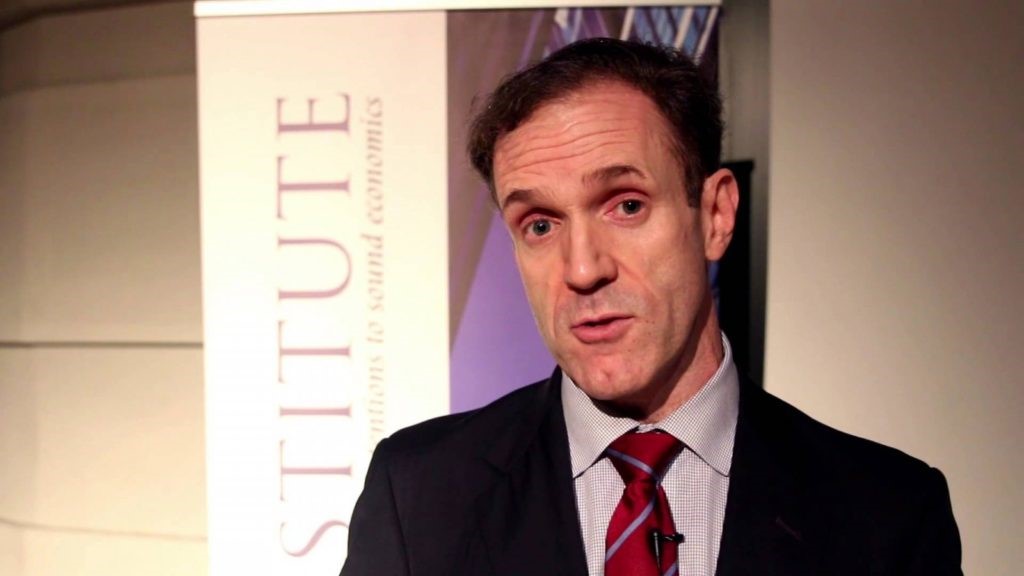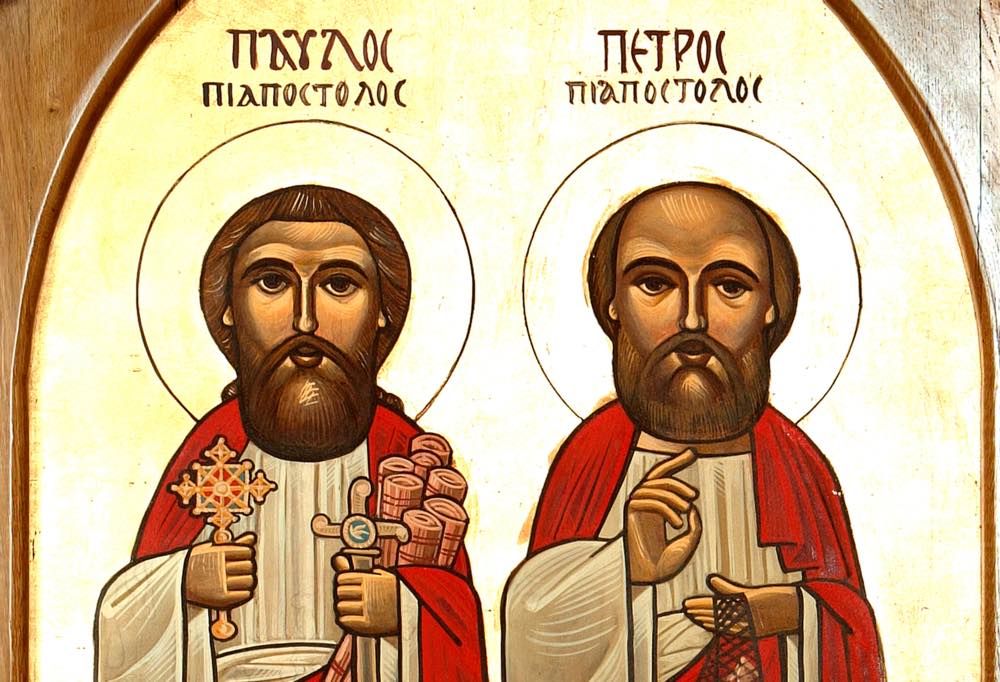– Aurelio Porfiri
A few weeks ago I was reading an article written by my very good friend Aldo Maria Valli. He quoted a researcher from the Acton Institute in USA on the issue of sentimentality. I did not know a lot about Dr Samuel Gregg before that and so I learnt that he is Research Director of the Acton Institute. Author of numerous books and articles, he also deals with issues of great concern to Catholics. So I asked him some questions about sentimentality and the Church, the #metoo movement, Veritatis Splendor and many more things.
Can you give some background about yourself?
I was born in Australia, educated in England, and now live in the United States. My area of research is heavily focused on questions of political economy, moral philosophy and natural law theory. I have written 11 books that address themes which fall into this area. Among some of these books are Becoming Europe (2013) which concerns the future of the European Union, The Commercial Society (2007) which addresses the nature and origins of market economies, and For God and Profit: How Banking and Finance Serve the Common Good, which explains the history and nature of finance as well as assessing its moral character. Apart from books, I have written many academic articles in refereed journals. I also have also written many opinion pieces in American, European, and Latin American newspapers.
You are a researcher at the Acton Institute. Can you tell us what the institute is about?
The Acton Institute was created in 1989 by a Catholic priest and a Catholic layman. Its purpose is to help people of all confessions and faiths understand basic economic principles and how they can be integrated into a sound understanding of the nature of the person. We conduct original research, conduct educational programs around the world, and have an extensive media outreach. Acton is based in the United States, but we conduct programs throughout the world – Europe, Africa, Asia, Latin America, Australia etc. We have a full time office in Rome and an affiliate organization in Argentina.
In one of your most recent articles you talked about the danger of sentimentality in the Catholic Church. Can you expound on this?
By sentimentalism, I mean widespread tendencies in the church to exalt strongly-felt feelings, devalue reason, and subsequently infantilize Christian faith. We see it in the widespread use of language in everyday preaching and teaching that’s more characteristic of therapy than words used by Christ and his Apostles. Words like “sin” thus fade and are replaced by “pains,” “regrets” or “sad mistakes.” Sentimentalism also appears likewise rears its head whenever those who offer reasoned defenses of Catholic sexual or medical ethics are told that their positions are “hurtful” or “judgmental.” Truth, it seems, shouldn’t be articulated, even gently, if it might hurt someone’s feelings. And if that was true, Jesus should have refrained from telling the Samaritan woman the facts about her marital history. Sentimentalism also blinds us to the truth that there is — as affirmed by Christ Himself — a place called Hell for those who die unrepentant. Sentimentalism simply avoids the subject. Hell isn’t a topic to be taken lightly, but ask yourself this question: When was the last time you heard the possibility that any of us could end up eternally separated from God mentioned at Mass?
Not recently…
Above all, sentimentalism reveals itself in certain presentations of Jesus Christ. The Christ whose hard teachings shocked his own followers and who refused any concession to sin whenever he spoke of love somehow collapses into a pleasant liberal rabbi. This harmless Jesus never dares us to transform our lives by embracing the completeness of truth. Instead he recycles bromides like “everyone has their own truth,” “do whatever feels best,” “be true to yourself,” “embrace your story,” “who am I to judge,” etc.”.
Sounds familiar…
Sentimentalism is thus a serious problem and it lead to people saying truly ridiculous things like “2 times 2 equals 5.”
What should be the perspective of Catholics on the presidency of Donald Trump?
The election of Donald Trump reflects the deep frustration that many Americans and people in general throughout the world have with the political establishment in their countries: an establishment that is perceived to be out of touch with normal people, buried in political correctness, and more concerned with promoting their own interests than the common good. Catholics throughout the world should be asking themselves why people are rejecting the professional political class, why people are rejecting the political classes’ dreams of global governance, and why people think that they have been abandoned by governments throughout the world”.
In your opinion, what is a viable solution to solve the problem of abuses in the Church?
There are two issues at stake. One is clericalism, by which I mean bishops and priests seeing themselves as a protected caste which is somehow not subject to either canonical law or civil law. The second problem is one of sexual morality: specifically, the presence of men in the priesthood who are active homosexuals. There’s no question that the nature of the sexual abuse is overwhelming of bishops and priests engaging in sexual relations with young men. The name for that activity is homosexuality. Any solution to the sex abuse problem thus involves (1) rooting out clericalism and (2) restoring chastity to the priesthood – and restoring chastity means confronting and removing sexually-active priests who are violating their vows of celibacy.
Pope Francis has said indeed that these abuses are related with clericalism. Can I have your take on that?
The pope is right insofar as clericalism is certainly part of the problem. But it is not the only cause of the abuses. Sexually active homosexuals among bishops and in the priesthood is another part of the problem. Overall, however, I think the abuses reflect a major crisis of sexual morality in the Church, specifically the Church in Western countries, and the failure of so many clergy to explain and defend the church’s sexual teaching in the wake of the Sexual Revolution.
Can I have your opinion on the #metoo movement, so relevant in your country?
To the extent that the #metoo movement has highlighted the degree to which sexual harassment of women has been a regular occurrence in many industries for long periods of time – especially professions that pride themselves on being quite left-wing such as Hollywood and the film industry – it is a good thing.
One of your books in 2013 was dedicated to an American phenomenon called “Tea Party Catholics.” What is it? Is it still relevant?
The argument of the book concerned the ways in which Catholicism supports the development of societies which are free and virtuous, that take economic freedom seriously, and which seek to promote human flourishing. The context in which these themes are treated is always changing, but the themes themselves are universal in nature.
We are celebrating 25 years of Veritatis Splendor by Saint John Paul II. What is the importance of this document?
I think that Veritatis Splendor was the most important encyclical written since Humanae Vitae. It identified and explained some major errors characterizing Catholic moral theology. One such error was “the fundamental option” – the idea that as long as you made a fundamental choice for Christ, nothing could separate you from Christ. This idea, promoted by the German moral theologian Bernard Haring, contradicted the Church’s teaching about those sins – we call them mortal sins – that sever our relationship with Christ until we confess those sin. The second error was consequentialism – the idea that the morality of an act is determined by the balance of potential evil and good effects proceeding from an act. This theory, associated with the German moral theologian Josef Fuchs contradicted the Church’s teaching that some acts are by their very nature intrinsically evil and never to be chosen.
Yes, these are common errors.
These two errors were very widespread in the Church, and Veritatis Splendor shows how they contradicted both Catholic faith as well as reason itself.
Can you say something more about Veritatis Splendor?
The other importance of Veritatis Splendor was how it explained how true freedom is inseparable from man’s unique capacity for reason, free will, and consequent ability to know and choose the fundamental goods which lie at the heart of human flourishing. When we constantly strive to choose these goods and avoid evil, we shape ourselves in the direction of the true, good and beautiful. No longer are we slaves of our passions. Instead we become wholly free and more truly alive.
What you think of the recent temporary agreement between China and the Vatican?
I am unsure as to whether it will advance relations between the Chinese regime and the Holy See in ways that will help Chinese Catholics in the conditions of modern China. Why? Because no one can make that assessment until we have more information about the details of the agreement. Without the facts, Catholics are not in a position to make a judgment and are likely to presume the worst.


 Follow
Follow


